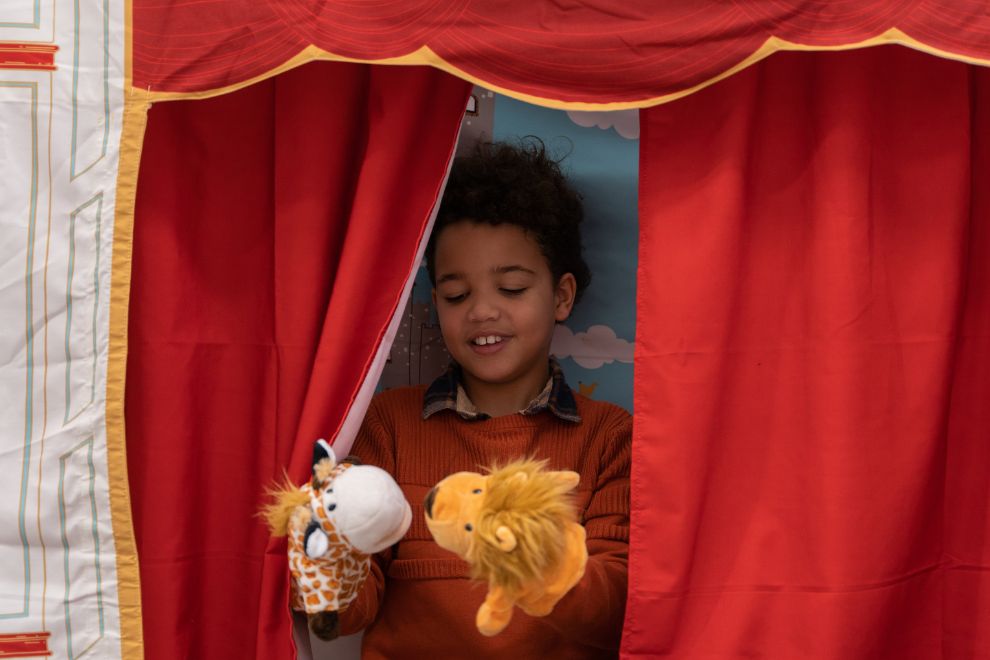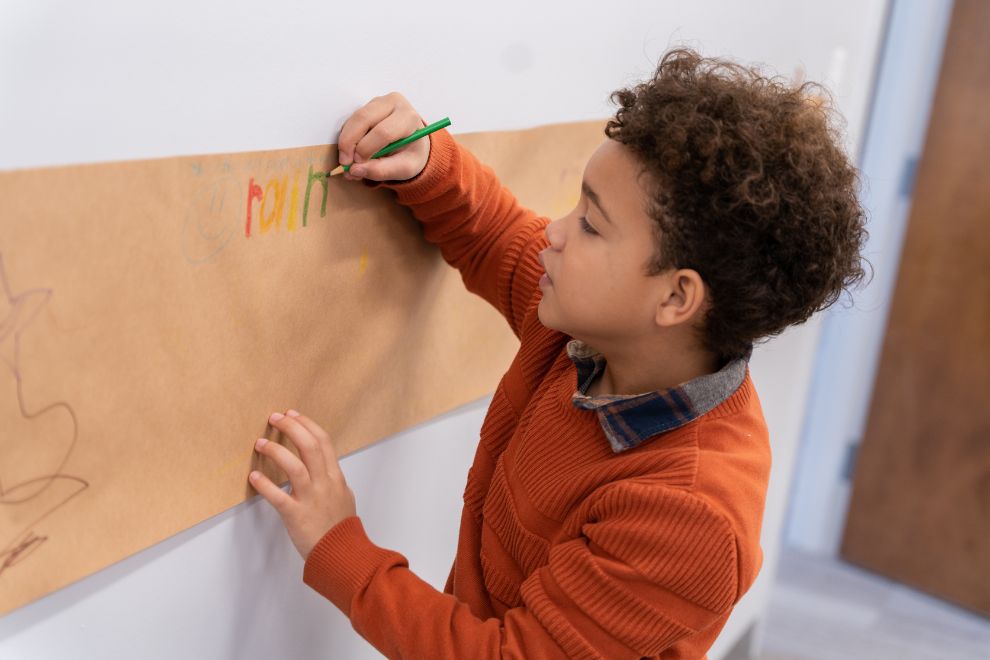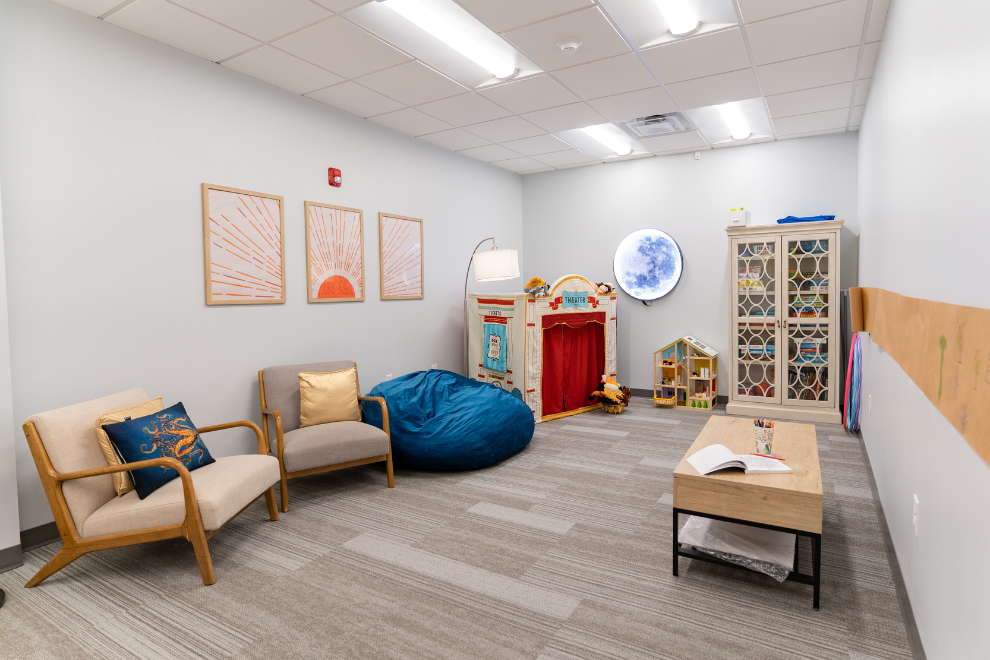Compiled by Jacquie Shires, resident in counseling, Fatima Batool, social work intern, and Molly Haynes, social work intern with RVA Counseling
When it comes to children’s well-being, understanding the signs that might indicate a need for counseling is crucial for their mental and emotional development. Two seasoned child and family therapists from RVA Counseling, Kaitlin Ingebretsen, LPC, and Hailey Wilson, supervisee of social work, shed light on some of these important aspects.

Q: What are some common signs and reasons that a child might benefit from counseling?
A: According to our experts, signs that a child might benefit from counseling often stem from their environment. They may show response behaviors based on what’s going on around them. Some patterns to watch out for include a lack of appetite, disinterest in activities, lashing out, and defiance. Some additional reasons that may prompt the need for counseling include a family history of mental illnesses or other life events like being in foster care, divorce, experiencing domestic violence, moving, or death of a loved one.
Q: What does a typical counseling session for a child look like?
A: There really is no typical. The structure of a session depends on the child’s age and comfort level. Inclusion of relevant family members is encouraged, even siblings. If caregivers contribute to the child’s mental health struggles, their participation is vital because they are the person who can help regulate the child and be a safe space day-to-day. Modalities like Cognitive Behavioral Therapy (CBT), mindfulness skills, family systems therapy, trust-based relationship intervention, play therapy, movement-based interventions and art therapy are often employed.

Q: How can parents make the most out of their child’s therapy?
A: Parents and caregivers are highly encouraged to actively participate in therapy sessions and continue discussions and skill-building at home. Therapy isn’t confined to the session; it requires collaboration outside that one hour per week. Parental involvement helps in fostering a regulated, safe space for the child by providing validation, empathy, and acknowledging a child’s individuality.
Q: What should parents expect when their child is in therapy?
A: It can take time to see changes and for your child to be getting the benefits of therapy. The primary expectation is that children will learn healthier coping skills, regulating their emotions, honoring boundaries, and addressing issues at home and school. If the parents are not involved therapeutically, then they can receive pushback. This is why it is important to work together in family systems.
Q: How can parents communicate with the therapist about concerns or questions?
A: Most frequently, parents come in at the beginning or end of the session to touch base and ask questions. Occasionally there are emails, and there are exceptions for phone calls. Regular phone calls are not appropriate unless the parents are booking an additional session.

Q: How can parents help their child comprehend the purpose of therapy and feel comfortable attending sessions?
A: Therapy has a societal stigma and adults play a large role in setting the tone for how children will view therapy and seeking support for the rest of their lives. We don’t want them to think therapy is scary, difficult, or something to feel bad about. It’s helpful to frame therapy as a place to ask for help and talk about problems and feelings, the therapist’s job is to listen and to help us figure it out. Additionally, when parents and guardians are involved and model self-reflection and the skills we’re working on, it can help mitigate the child blaming themselves.
Q: How is progress measured and evaluated?
A: Progress hinges on treatment goals, progress notes, symptom assessment, and skill-building evaluation. The therapist maintains open dialogue with parents, caregivers, and clients to track changes and discuss observations from sessions.
Q: How long will a child be in therapy?
A: Duration varies based on the child’s needs, age, and development. Some cases require short-term intervention, while others may extend to long-term support, lasting weeks to a lifetime, depending on the issues. Everyone learns skills and how to apply them in their life at different speeds. Another factor is that it takes time to build trust and to build a relationship.. For some the therapeutic relationship is built instantaneously, and in other cases, the kid might be more shy or reluctant to open up to others.

One of the many things RVA Counseling has to offer that sets us apart is our in-office playroom. With a large selection of games, arts and crafts supplies, and toys, this space offers a variety of ways for your child to engage in play during a session with their therapist. RVA Counseling has numerous clinicians that work with ages five and up.
If you’re eager to delve deeper into this crucial topic or seek tailored support, call and ask for Kaitlin Ingebretsen, Carolyn Clarke, Hayley Jenkins, Kevin Salvas or Hailey Wilson. We can be reached at (804) 716-0428 or via email at riverside@rvacounseling.com.




